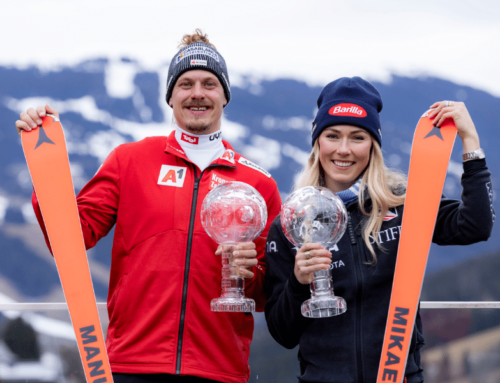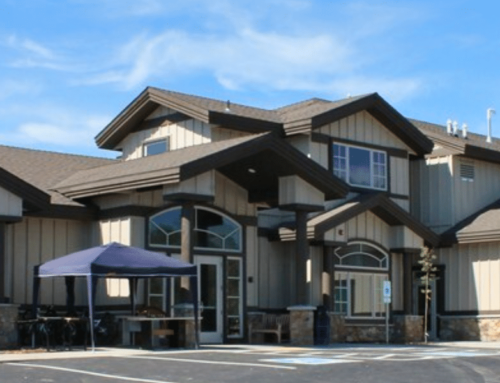Yes, we need to talk about medals
Let’s take a deep breath, can we?
Every four years, the U.S. ski racing community — specifically those involved at the national federation — takes stock of its performance at the Olympic Winter Games. The tone and tenor of the post-Olympic offseason can be celebratory with a general sense of accomplishment and satisfaction. Or it can be something else.
Regardless of the outcome, the weeks and months that follow the Olympics are generally a time of significant change and often turnover at various levels of the sport. Our NGB will review athletic strategies, how money is allocated, how teams are organized and staffed; they’ll also review marketing and commercial strategies. A refreshed four-year plan is put into place as we enter the new “Olympic cycle.”
Anyone who says the Olympics are not important to Alpine ski racing has never sat through a U.S. Ski & Snowboard Partner Summit in Park City, where in the air-conditioned dog days of summer the Olympic drumbeat resonates throughout the $22 million Center of Excellence, years in advance.
It’s not just marketing. From an athletic standpoint, the Olympics are equally important as evidenced in part by U.S. Ski & Snowboard’s “Project 26,” which was unveiled in 2017 and “refined” in 2020. Among the stated goals of that high-profile initiative was to “refine U.S. Ski Team programming to focus on winning medals with selection criteria specifically focused on athletes who are on track to win medals.” Furthermore, the project sought to “better understand and learn both from (the U.S.’s) own Alpine development system and those of other major nations in the sport. After a nearly two-year study, changes were implemented with a specific goal to garner results at the 2022 and 2026 Olympics.”
The ski-racing purists among us will pooh pooh the Olympics and perhaps for good reason. They’re less competitive than an average World Cup race, as we documented earlier this year, with many top-30 athletes sitting on the sidelines due to a somewhat cockamamie quota system that needs to be fixed. Also, in recent years, the Olympics have taken place at venues that are, frankly, pretty weird, lacking history or prominence in the world of Alpine ski racing. (Happily, that will change in four years’ time as the Games head to Cortina.) There are certainly other big events in the world of ski racing. Just ask any kid on the downhill team if he’d rather win an Olympic gold medal or a gondola in Kitzbuehel, and you’ll have your answer. But what makes winning at the Olympics different? Primetime TV, of course, and that’s significant whether you like it or not.
In terms of medals — which have been the standard metric for success at the Olympics since, well, forever — the U.S. just had its worst year since 1988. Are the Olympics flukey? For sure, but that cuts both ways and has for the U.S. over the years. Injuries, such as Breezy Johnson this year and Lindsey Vonn in 2014, can be devastating, but they’re also inevitable. Teams with depth should be able to weather those storms as we did in 2014 when the U.S. earned five individual medals, none of which were attributed to the injured superstar Vonn.
This year, we saw what depth can look like. The Swiss set an Alpine team record winning five gold medals, nine total during these Games. Their golds were spread out among five different skiers: Lara Gut-Behrami (super G), Michelle Gisin (combined), Corinne Suter (downhill), Beat Feuz (downhill) and Marco Odermatt (giant slalom). The Austrians, sans Marcel Hirscher, won three gold and seven total medals, three of which came from a 29-year-old guy who was booted off the team. Italy walked away with four medals, despite Sofia Goggia skiing on a broken leg. And France picked up three medals without the assistance of Alexis Pinturault.
Should we determine the strength of a national program based solely on Olympic results? Definitely not, but they do help sound the alarm when things aren’t quite right.
The time and money — blood, sweat and tears — that go into running the national organization as well as countless club and academy programs across the country on a year-round basis is staggering. U.S. Ski & Snowboard’s budget for programs and admin in 2020 was nearly $45 million. It’s even more staggering when you begin to consider the time and money — blood, sweat and tears — needed to support independent development programs, academies, camps, equipment, travel, and so on and so forth.
At the risk of sounding callous, we are invested in this. We can’t simply sugarcoat the Olympics like they’re a U12 race — hand out participation trophies, cut up some orange slices, and bust out the Capri Sun. This is professional sports. These athletes — and the people who have worked so hard to get them to this point — deserve a critical media.
The role of the media
There will be those who will accuse us, Ski Racing Media, of putting too much emphasis on the Olympics. As the only publication in North America that covers Alpine ski racing week in and week out on a year-round basis, we certainly take issue with that accusation. We cover every stop on the World Cup Tour, every NorAm, every NCAA race. We cover the industry top to bottom to the best of our abilities and with the limited resources that come with being an ultra-niche, independent sport publication.
Speaking for the publication at this point in time, we have no plans to succumb to what we believe is a vocal minority on social media demanding we be more sensitive or “supportive” in our reporting. That is not the role of a passionate media. In fact, it is the lack of critical oversight in the media — with the big publications covering only human interest — that has enabled ineptitude within the NGB. There should be more criticism, not less.
Have you ever listened to sports-talk radio in a city like New York or Boston when their teams are lagging in the standings? Have you ever picked up an Austrian newspaper when things are less than perfect on their squad? In sports, the biggest fans are often the toughest critics. We are not here to cheerlead. We do not paint rosy pictures of disappointing results. For those seeking that type of content, it is available in abundance on the U.S. Ski Team’s website and social media channels.
We ask our readers to approach our coverage with a nuanced maturity. We celebrate individual achievements and did so throughout the Games: Ryan Cochran-Siegle’s feisty and emotional silver medal in the super G; the impressive River Radamus (pride of Vail, Colo., my hometown) finishing a career-best fourth, just shy of a medal; Tommy Ford’s brave comeback from yet another brutal set of injuries; Nina O’Brien, the warrior who remains positive and upbeat despite misfortune at big events; Buck Hill and UVM’s own Paula Moltzan serving as a role model for NCAA athletes everywhere; Bella Wright’s incredible comeback through adversity this season; the candor of Jackie Wiles who was willing to say what most athletes in the sport only think; let’s not forget Bryce Bennet’s huge win in Val Gardena earlier this year. We applauded with you, and we covered these stories with vigor.
But those stories don’t change the fact that we, as a nation, came up short in these Games. This isn’t “athlete bashing.” The athletes are least to blame. And it wasn’t the media’s fault either, as some would suggest. The pressure came from within and would cripple any one of us. The team needs to be deeper. The team needs to be stronger. We need less pressure (and less hype) on a select few.
Then there’s the cost problem.
As we chronicled in a 31-part series last summer — a story that was recently picked up by the Wall Street Journal and Yahoo Sports — our sport is in a financial crisis. How has that played a role over the last decade, and what if anything are the powers that be doing about it? How many talented kids are we going to push out of this sport? How long until we hit rock bottom, or are we already there?
There’s more to unpack, so this spring and summer, readers can expect the tone and tenor of our publication to be candid, to acknowledge disappointment, and to look for solutions wherever we can find them. If you have something to say, please reach out.
We hope our readers will have the good sense to understand that our criticism is not directed at the athletes but rather a system that is failing to support them.
As we pointed out, you can root for the players on the field and simultaneously be angry at the organization. Don’t believe me? Pay a visit to downtown Cleveland. Ask the guy sitting at the end of the bar in the Browns jersey what he thinks of his team’s performance over the last few decades.
Let’s hope we, the fans of U.S. Skiing, never get to that point.





















